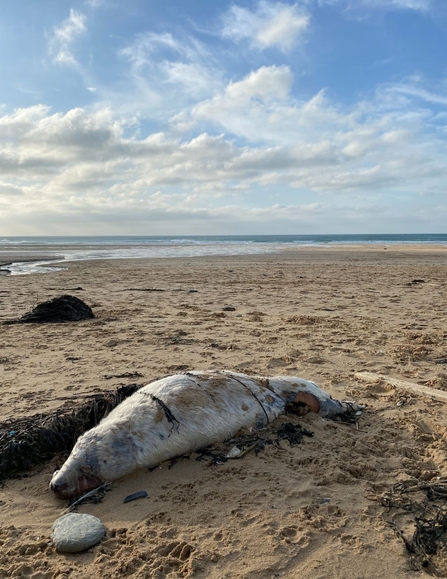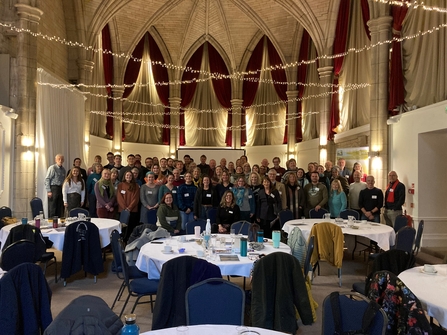As part of Thank You Week, Cornwall Wildlife Trust is celebrating the dedication of over 250 volunteers who work with their globally recognised Marine Strandings Network. Recording animals that wash up on Cornwall’s coasts, these volunteers collect world class data, some of which has never been recorded previously.
Now in its 20th year with Cornwall Wildlife Trust, the Marine Strandings Network exists to investigate the lives of elusive and sometimes rare animals that live in the sea and are usually incredibly hard to study. Although sad, these wash ins provide information on many things, including marine wildlife distribution, diet, behaviour, and threats such as the effects of pollution.
This work is more important than ever, with the recent Avian flu discovery in stranded seals and dolphins and the need to understand this horrific disease in wildlife better.



